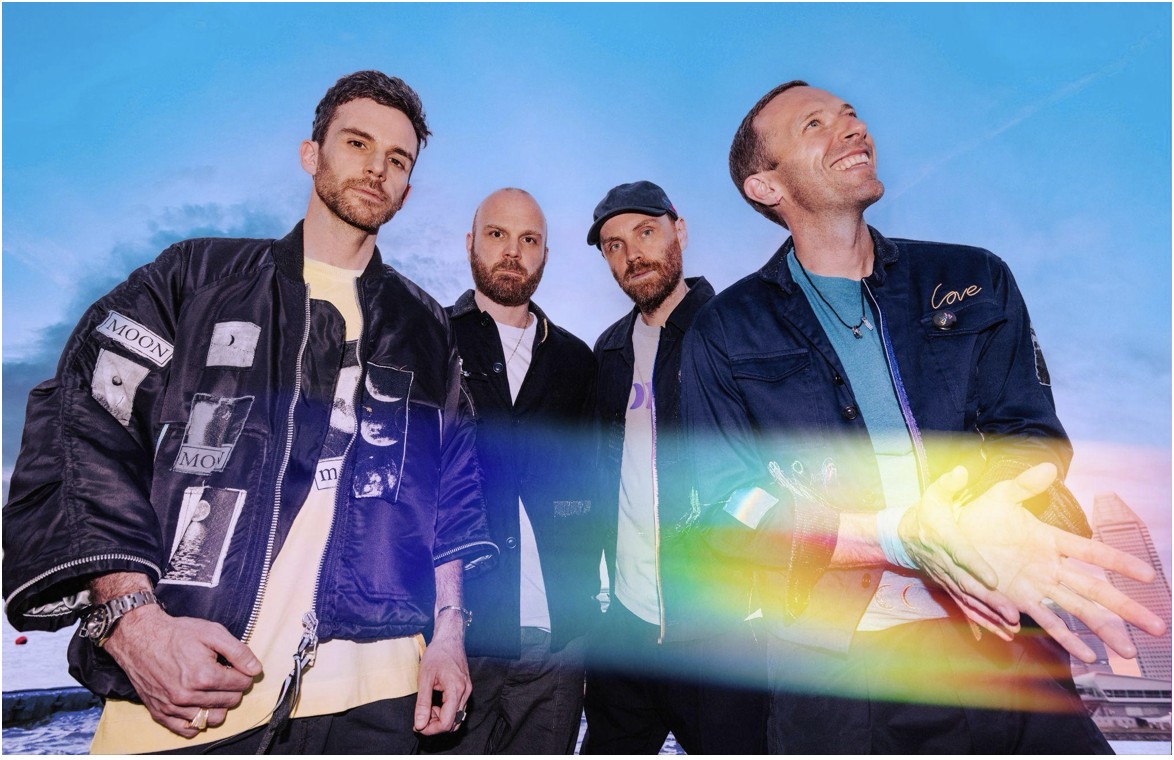 Anna Lee
Anna Lee
Mild-mannered British megastars Coldplay were roundly booed at their own show in Romania last week when they introduced a special guest. Chris Martin and his bandmates like to give the stage to a friends of theirs from the area when they tour; Bruce Springsteen came out to surprise fans in East Rutherford in 2022 and Bryan Adams was a guest in Vancouver. In Bucharest, they welcomed Babasha, a 22-year-old manele artist currently racking up millions of views on his latest single “Păi Naa,” to perform the song with Martin.
“Păi Naa” is a legitimate hit right now, with 12 million views on YouTube placing it on the trending music chart just below Benson Boone’s inescapable “Beautiful Things.” And yet Babasha was booed by the audience at the Arena Națională, something that left him upset but not surprised.
“I expected [the audience] to be divided, but I didn't expect it to be this bad,” Babasha said in a message in Romanian posted on TikTok. “For those who don't understand this, manele is only infamous because of racism, not because of the music itself,” he explained.
Manele, in the simplest terms, is a folk genre synonymous with Roma people — Europe’s largest and arguably most marginalized minority. The music is upbeat and celebratory; “Păi Naa” is a lively dance track about falling for someone (“You've turned my compass upside down”) with an addictive riff. The music has roots in Balkan and Arabic sounds and was originally played at weddings and birthday parties. It would get your dad dancing. The sound has been updated and modernized by Roma artists such as Babasha as well as Gya, Gheboasa, and Tzanca Uraganu (Tzanca the Hurricane). In addition to “Păi Naa,” Spotify’s Manela 2024 playlist features songs like “Guli Guli,” a song by the popular Bogdan DLP that translates to “Put your hands up and never stop.”
In spite (or perhaps, because) of its popularity, manele is derided by critics as being hyper-sexual, materialistic, and linked to criminal activity. In 2010 the city council of Cluj, a city in the northwest of the country, forbade taxi drivers from listening to the music. The mayor of Timişoara, meanwhile, banned manele from public celebrations on Romania’s Great Union Day in 2023, claiming that he was “disturbed” by the genre’s lyrics.
Manele is a genre built for parties and lyrically preoccupied with the pursuit of good times. Figures in Romania’s criminal underworld have been known to hire manele artists to perform private shows as a flex of their influence and money. The world of bottle service and hard beats makes it feel a little like 2010s EDM, as heard in the brash simplicity of a hit like Luly Neamtu’s “Sugar Daddy,” crossed with the patently racist response to hip-hop’s entire history. It’s hard to imagine any mainstream rapper being booed by Coldplay fans, though.
The timing of the band’s Romania concert ties into a more widespread emboldening of prejudicial behavior in Europe at the moment. Right-wing populism is surging, with far-right parties making significant gains in the recent European Union parliamentary elections in both France and Germany. Romania is governed by the left-leaning Social Democratic Party but anti-Roma sentiment remains a part of society.
“On almost every indicator of human development, in almost every European country, the Roma fall far below the national average,” an Amnesty report reads. “They have lower incomes, worse health, poorer housing, lower literacy rates and higher levels of unemployment than the rest of the population.”
This is true in Romania, too. “Romania is the only country in Europe that treated Roma like slaves. There is a history of 500 years of Roma slavery in Romania,” Željko Jovanović, a prominent Roma rights activist and president of the Roma Foundation of Europe told EuroNews. “The population has this historical memory of Roma being less than humans or less than citizens.”
The marginalization of manele is undeniably an extension of this sentiment. It is music that reflects the socio-economic struggles of a denigrated minority while also offering moments of celebration and social mobility for those involved in making it.
Coldplay, to their credit, did not back down in the face of the discriminatory behavior of their fans. Babasha returned for a second performance with the band in Bucharest with Chris Martin telling the fans: “If you don’t like it, go to the bathroom, text your friends, or do whatever you want, but be kind.”
Babasha, meanwhile, remained resolute: “Regardless of all the booing in the world, I would have still accepted (Coldplay's invitation) because something like this happens once in a lifetime," he said on TikTok. "I'm just a 22-year-old kid who really works day and night for a dream, no matter if I'm singing manele.”